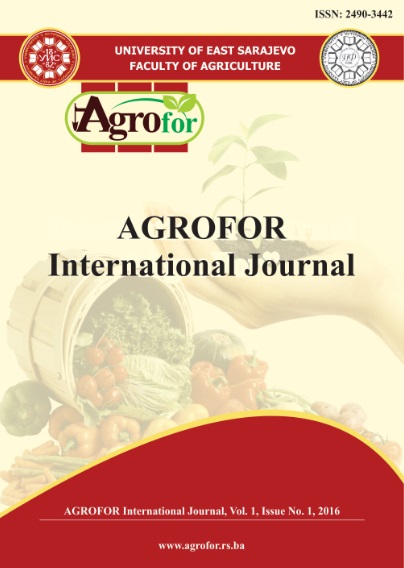FOOD WASTAGE BY TUNISIAN HOUSEHOLDS
DOI:
https://doi.org/10.7251/AGRENG1601172SAbstract
Food waste (FW) is seen as an obstacle to achieving food and nutrition security and
food systems sustainability. It is known in literature that households are significant
contributors to the total amount of FW. This paper reports on results of an online
survey that was conducted from February to April 2015 with a random sample of
281 Tunisian adults. The aim of the survey is to assess the knowledge and relative
importance of FW; attitudes towards FW; impacts of behaviors regarding food and
food management; quantity and value of FW; as well as barriers and willingness to
behavioral change. The sample was not gender-balanced (71.2% female and 28.8%
male). The majority of the respondents was young (70.8% aged between 18 and 34
years) and has high education level (95.4% having university and PhD degrees).
Food waste is prevalent in Tunisia as about the half of respondents declare that
they throw food. The most wasted food products are fruits, vegetables, and cereals
and bakery products. Only 42.7% of respondents declared that the economic value
of food waste generated each month is more than 6US$. Most of Tunisian
respondents have a good understanding of food labels that is probably due to the
high education level of the sample. About 37% of respondents throw weekly at
least 250 g of still consumable food. To reduce FW in Tunisia it is important to set
a strategy at all food chain levels. There is also an urgent need to raise people’s and
organizations awareness towards this problem. This article provides a basis for the
development of other more context specific investigations and interventions for the
prevention of household FW in Tunisia.

